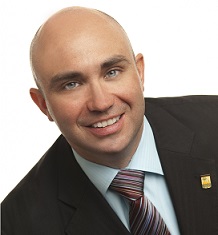
As I reflect on the past 13 years I reflect on the stages of my own evolving consciousness that I have had to go through – sometimes once, sometimes over and over and some right now. I hope what I have learned may help you.
DESIRE
Desire is a sense of longing or hoping for a person, object, or outcome. The same sense is expressed by emotions such as “craving”. When a person desires something or someone, their sense of longing is excited by the enjoyment or the thought of the item or person, and they want to take actions to obtain their goal. The motivational aspect of desire has long been noted by philosophers; Thomas Hobbes (1588–1679) asserted that human desire is the fundamental motivation of all human action.
Desire derives from the Latin desiderare, ‘to long or wish for’, which itself derives from de sidere, ‘from the stars’, suggesting that the original sense of the Latin is ‘to await what the stars will bring’.
We were born from desire, and cannot remember a time when we were without it. So habituated are we to desiring that we are not conscious of our desires, which only register if they are very intense or if they come into conflict with other desires.
Hinduism may name desire as a life force, but it also calls it the ‘great symbol of sin’ and ‘destroyer of knowledge and self-realization’. Similarly, the second of the Four Noble Truths of Buddhism states that the cause of all suffering is ‘lust’ in the broad sense of ‘coveting’ or ‘craving’. The Old Testament opens with the cautionary tale of Adam and Eve: had these earliest of our ancestors not desired to eat from the forbidden tree, they would not have been banished from the Garden of Eden into our world of woe. In Christianity, four of the seven deadly sins (envy, gluttony, greed, and lust) directly involve desire, and the remaining three (pride, sloth, and wrath) involve it indirectly. Christian rituals such as prayer, fasting, and confession all aim, at least in part, at curbing desire, as does humility and self-abasement, conformity, communal living, and the promise of life-after-death.
All suffering can be framed in terms of desire. Unmet desire is in itself painful, but so is fear and anxiety, which can be understood in terms of desires about the future, and anger and sadness, which can be understood in terms of desires about the past.
If desire is hurtful, so are its products. An excess of desire is, of course, called greed.
Desire is intimately connected to pleasure and pain. Human beings feel pleasure at the things that, in the course of their evolution, have tended to promote their survival and reproduction; they feel pain at the things that have tended to compromise their genes. The problem is just that: our desires evolved ‘merely’ to promote our survival and reproduction. They did not evolve to make us happy or satisfied, to ennoble us, or to give our life any meaning beyond them. Neither are they adapted to modern circumstances.
People who have many desires often have volatile emotional lives. Their emotions go up; they come down. They get upset easily; they calm down quickly. None of these emotional conditions lasts very long, however; one of the great advantages of being superficial is that you are never upset for very long because the things that upset you aren’t important. But neither are your satisfactions important or enduring. Nothing lasts long, because nothing matters much.
People whose desires are few, in contrast, have passion. Whatever field of life they commit themselves to, they have a tremendous passion to persevere and to succeed. Driven by a longing that is spread among only a few desires, passionate people often achieve great things.
We need to master desire, because, paradoxically, it is only by mastering our desires that we can live life to its fullest. And it is only by mastering our desires that we might at last find some measure of peace. Whether through meditation or through adversity, we begin by asking what it is that we want. Then we ask which of these things we can be passionate about. Finally, we ask to what we can wholly devote ourselves, even our lives. In the end, the process of self-discovery begins with a very simple question: what do you want?
 Kevin T. Cahill is an award winning sales professional and consultant specializing in the art of managing change and achieving great results. As the founder of The Change Revolution, this international best selling author and speaker inspires men and women alike. As someone who has mastered the art of resilience and hope, Kevin’s philosophy as a clarity builder is strategic and results driven. Kevin’s passion is to equip individuals and organizations with a renewed sense of clarity and excitement, knowing that positive change will bring about positive gains. His exciting creation The Change Revolution offers a winning blueprint for navigating through change and achieving success.
Kevin T. Cahill is an award winning sales professional and consultant specializing in the art of managing change and achieving great results. As the founder of The Change Revolution, this international best selling author and speaker inspires men and women alike. As someone who has mastered the art of resilience and hope, Kevin’s philosophy as a clarity builder is strategic and results driven. Kevin’s passion is to equip individuals and organizations with a renewed sense of clarity and excitement, knowing that positive change will bring about positive gains. His exciting creation The Change Revolution offers a winning blueprint for navigating through change and achieving success.
Speaking inquiries email bookings@kevintcahill.com or call 519-836-7989.

